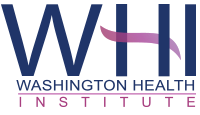MONKEYPOX
Prevention of Monkeypox in Washington, D.C.

Monkeypox is a rare virally transmitted disease that is part of the variola virus family, the same virus family as smallpox. There are types of the virus: West African and Congo Basin. The current virus present in the United States is of the west African type. Recently, the World Health Organization (WHO) declared monkeypox a Public Health Emergency of International Concern (PHEIC), and cases are on the rise in Washington, D.C.
How Does Monkeypox Spread?
The virus spreads through direct contact with body fluids, sores or scabs of an infected person. It can also spread through the handling of materials, such as clothes, bed sheets or towels that have touched the body fluids or sores of a person with monkeypox. Monkeypox spreads through intimate contact during sex, kissing, intimate touching or even cuddling. Prolonged, face-to-face contact between people can also spread the disease, but is a more uncommon cause of transmission.
Monkeypox Prevention
The best way to prevent the virus is by avoiding close contact with those infected or those who may be infected. If you have to interact with a person diagnosed with monkeypox, you should:
- Wear a mask and other Personal Protective Equipment (PPE)
- Wash your hands frequently with soap and water or an alcohol-based hand sanitizer
- Do not touch the infected rash or scabs
- Do not kiss, hug, cuddle or have sex with the infected person
- Do not share eating utensils or cups with the person who has monkeypox
- Do not touch the bedding, towels or clothing of the infected person
Who Is At Risk For Monkeypox?
According to the CDC, the risk of monkeypox in the United States is still considered low. However, on June 4, 2022, the DC Public Health Lab confirmed the first positive case of monkeypox in Washington.D.C.
People with weakened immune systems, children under the age of 8, people with a history of eczema, and people who are pregnant or breastfeeding may be more likely to get a more serious case of the monkeypox virus. Regarding infection risk, the CDC reports that it is currently unknown whether HIV increases a person’s risk of acquiring monkeypox disease.
What Are Symptoms Of Monkeypox?
Though most people develop a fever first, sometimes people get a rash first, followed by other symptoms. Other people with monkeypox only experience a rash and no other symptoms. If you have been exposed to monkeypox or if you have not been exposed but are experiencing symptoms, give us a call at 202-525-5175.
How Is Monkeypox Diagnosed?
Monkeypox is diagnosed through an Orthopoxvirus PCR test. Diagnostic testing for the virus is available at Laboratory Response Network (LRN) laboratories, which are located throughout the United States. Currently, there is no commercially available way to detect the monkeypox virus.
At this time, there is no specific treatment for monkeypox. However, if you test positive for the virus, antiviral drugs and vaccines developed for smallpox may be used to treat monkeypox virus infections.
The CDC recommends self-isolating if you are diagnosed with monkeypox. You can spread the virus from the time you start experiencing symptoms until the symptoms have stopped. Stay at home until your symptoms are no longer present.
Where Can I Find A Monkeypox Vaccine?
In D.C., vaccine eligibility has expanded to include individuals who work or go to school within the District. You will need to bring proof of residency or enrollment in D.C. to receive your vaccine. If you meet the above qualifications, you can pre-register for the vaccine with D.C. Health.
Anyone can pre-register for the vaccine, but that doesn’t mean you will be contacted about making an appointment. Monitor your email closely after pre-registering for the vaccine so that you can schedule an appointment to receive it if a spot is made available to you.
